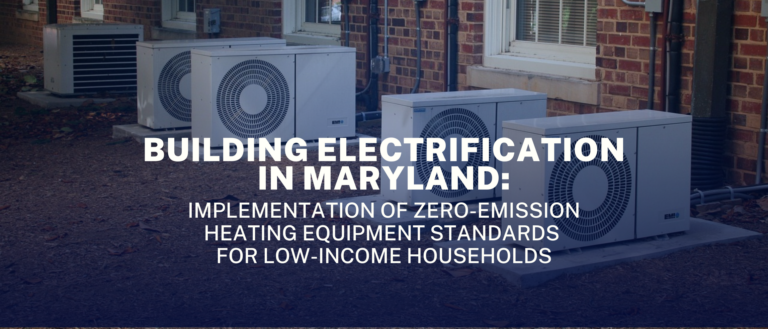This is an excerpt from a post originally published on LPE Blog. It is also part of a symposium on Alyssa Battistoni’s Free Gifts: Capitalism and the Politics of Nature. Read the rest of the posts here.
In Free Gifts, Alyssa Battistoni traces the concept of the “externality” across the past century. This history begins in 1920, when the economist Alfred Pigou observed how private market transactions could impose uncompensated harms on third parties, such that the prices of goods failed to reflect their true (social) cost. Fortunately, he argued, these external costs could be rectified by government intervention: adding a tax equal to the social cost, which would cause market trading to “internalize” the harm and produce the optimum amount of the activity in question. Free-market advocates viewed such externalities as a rare exception to the general rule of the wisdom of the market.
As Battistoni describes, however, this would change in the coming decades. As the U.S. postwar economy boomed, so did its pollution, and Pigou’s rare “market failures” began to seem ubiquitous rather than exceptional. In 1960, Ronald Coase challenged Pigou’s invitation for widespread government regulation in a landmark article, The Problem of Social Cost. Coase struck at the heart of welfare economics: how was Pigou, or the government, to determine the “optimal” level of pollution? How could they know how much people value the cost of pollution, or their own health? Battistoni dwells on Coase’s understanding of externalities as mutual costs. For Coase, the smokestack can only cause harm to health if people choose to live near it: “both parties cause the damage.”
Rather than dismiss Coase, Battistoni argues that Coase lands legitimate critiques on Pigou’s framework: Pigou makes a moral judgment (the assumption that pollution is bad) in pollution-generating markets, while declining to apply normative standards to any other types of markets or economic goods. But, in Battistoni’s words, “the distinction between pollution and other kinds of goods just doesn’t hold.”
Once Coase’s disciples recognized that pollution was just another kind of market, they launched an attack typical to that of the Chicago School, accusing regulators of paternalism. They argued that the government shouldn’t impose normative judgments on resource allocation; instead, it should set the conditions for people to negotiate the most efficient outcome amongst themselves. Markets all the way down. But Battistoni takes this observation in a different direction: “the burden of social costs is better characterized in terms of struggle between classes with disparate power than as a market exchange between equal individuals.” For Battistoni, “externalities” are the exception that explodes the rule: market allocations can never be assumed to achieve the “optimal” outcome, as they are always the product of unequal power relations.
Showing 2,938 results

Madison Condon | December 3, 2025
In Free Gifts, Alyssa Battistoni traces the concept of the “externality” across the past century. This history begins in 1920, when the economist Alfred Pigou observed how private market transactions could impose uncompensated harms on third parties, such that the prices of goods failed to reflect their true (social) cost. Fortunately, he argued, these external costs could be rectified by government intervention: adding a tax equal to the social cost, which would cause market trading to “internalize” the harm and produce the optimum amount of the activity in question. Free-market advocates viewed such externalities as a rare exception to the general rule of the wisdom of the market. As Battistoni describes, however, this would change in the coming decades.

Sophie Loeb | December 2, 2025
On November 13, 20 folks attended the second annual rural clean energy convening in Roanoke Rapids, North Carolina, co-sponsored by the Center for Progressive Reform and the Center for Energy Education. Attendees included academics, energy policy advocates, small-scale developers, technical experts, and government representatives. We built off last year’s convening, addressing the new North Carolina policy landscape and context given the repeal of federal funding, the state’s proposed unfavorable carbon plan, and rising energy burden in communities.

Rachel Mayo | November 25, 2025
This November, we honor the leadership, knowledge, and resilience of America’s first peoples, who have safeguarded the land, water, and air that sustain us all.

Daniel Farber | November 13, 2025
Although Congress vetoed California’s most recent vehicle regulations, the state can pass new regulations so long as there are significant differences from the ones Congress overturned. The Trump administration has been arguing all along that California lacks the power to regulate greenhouse gases from vehicles. Those regulations are a crucial part of the state’s climate policy. Sooner or later, courts will need to decide the extent of California’s legal authority over vehicle emissions. The issues are complex, involving an unusual statutory scheme. Here’s what you need to know, and why I think California should win this fight.

Minor Sinclair | November 12, 2025
After nearly five years of serving this amazing organization and its inspiring community of scholars, advocates, and activists, I’ll be stepping down as executive director of the Center for Progressive Reform.

James Goodwin | October 27, 2025
The current Trump administration has made individualized exceptions and waivers one of the signature features of its governing approach.

Federico Holm, James Goodwin | October 16, 2025
The Congressional Review Act (CRA) provides the U.S. Congress with an expedited procedure to review and potentially overturn final rules issued by federal agencies. Despite being touted as a critical avenue for congressional oversight, the CRA is often deployed as a partisan tool that replaces agency expertise and democratic consideration with political maneuvers and slim voting majorities. The use of the CRA in the current Congress so far has shown us how easy it is to misuse “resolutions of disapproval”—the specialized form of legislation it creates—both in numbers and the scope of its application.
Federico Holm | October 15, 2025
Since Day One, the Trump administration has aggressively pursued policy actions that match the recommendations contained in Project 2025. We have been tracking the administration’s actions since February, and our Executive Action Tracker (jointly maintained by the Center for Progressive Reform and Governing for Impact) highlights the speed and effectiveness with which the administration has advanced Project 2025’s goals.

Bryan Dunning, Christopher Stix | October 14, 2025
In the past year, Maryland residents have seen their heating bills skyrocket, which has largely been tied to increased costs of methane gas distribution. These costs are expected to worsen as increased spending on the distribution system must be repaid over the next several decades. At the same time, greenhouse gas emissions from burning fossil fuels in the home contribute substantially to climate change, and pollution from fossil fuel heating also has a substantial impact on residents’ health. In a new report published today, we explore policies designed to tackle these challenges and provide analysis and recommendations on how to make the transition to updated heating technologies and building electrification more equitable and effective for low-income Marylanders.